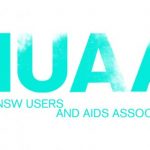The Rights of People Who Use Drugs: An Interview With INPUD’s Judy Chang

The war on drugs has failed. This is a reality that’s increasingly being acknowledged around the globe, as communities start to realise that the outcomes produced by this intensification of drug law enforcement have been overwhelmingly destructive.
The close to fifty years of the drug war has seen the mass incarceration of people for merely using illicit substances, the fostering of huge, often violent, criminal networks, and the increased consumption of the illegal drugs that are supposedly being eradicated.
But, it’s not just the war that’s failed. The century-old system of drug prohibition is also crumbling.
The outlawing of certain substances has from the very beginning created a black market, where drugs of dubious quality can be sold. And people who use drugs have been forced underground to take these uncertain substances in a manner that’s more harmful than it need be.
Its death throes
And there have been major developments around the world that reveal those in power are beginning to accept that a different approach to drug use must be taken.
Recreational cannabis use has been legalised in nine US states. Canada is set to establish a regulated cannabis market later this year. While Uruguay was the first country to legalise the pleasurable use of the plant nationwide in 2013.
In Colorado, the legalisation of recreational pot has been lauded for not only easing the burden on the criminal justice system, but for benefiting the whole community, as the tax revenue it has generated has been funnelled into public health programs and schools.
The Global Commission on Drug Policy produced a report in 2011, detailing the failures of the drug war. Significantly, the commission is made up of some of the world’s former heads of state and leading intellectuals.
While Portugal decriminalised personal possession and use of all illicit substances back in 2001. Hailed as a success worldwide, this approach led to huge drops in the number of drug-related deaths and drug-induced HIV infections.
However, the Portuguese model does nothing to eliminate the black market, or to ensure the quality of the drugs it produces.
Peer-based empowerment
People who use drugs have been the major casualties of the drug war. At the frontline, they’ve been subject to systematic stigmatisation, criminalised and incarcerated, and they’ve also been forced to carry out their use in a manner that can endanger their lives.
But, over recent decades, people who use drugs have begun mobilising. They’ve started to assert their basic human rights and call on governments and institutions to implement policies and practices that improve their quality of life.
The International Network of People Who Use Drugs (INPUD) was formed by a group of activists at the 2006 International Harm Reduction Conference, where the Vancouver Declaration was produced. It’s an important statement that promotes the rights of people who use drugs globally.
Sydney Criminal Lawyers® spoke with INPUD executive director Judy Chang about the human rights violations people who use drugs are subject to, the horrors of the war on drugs in the Philippines, and the reasons why the end of the drug war is inevitable.
Since it was established in the mid-2000s, INPUD has been campaigning tirelessly for the rights of people who use drugs, as well as working with United Nations bodies on policies that affect the lives of these people.
Judy, what are the key human rights violations that are being committed against people who use drugs currently around the globe?
Our human rights are consistently undermined in the context of drug prohibition, in the pursuit of a drug free world. The war on drugs, is in effect and essence, a war on people who use drugs.
We are currently subject to the international drug control treaties, which aim to deter drug use, possession and trafficking. These, in practice, serve only to punish and control people merely for their choice in substances.
Human rights violations engendered by the current response are severe and varied, affecting every aspect of our lives. The specific lived effects of the war on drugs are:
The Death Penalty: Thirty three countries impose the death penalty for drug-related offences. This is a clear infringement of international law.
Extrajudicial killings and state-sanctioned violence: The world is witness to a humanitarian disaster in the Philippines, where up to 20,000 people have been extrajudicially killed in the war on drugs. The president has vocally supported this mass murder, and no perpetrators have been brought to justice.
In all settings, the criminalisation of drug use leads to violence with impunity. Whether perpetrated by law enforcement or the wider community, people who use drugs are denied justice or forms of redress.
Overdose deaths: An estimated 70,000 to 100,000 people die due to opioid overdose each year. More U.S citizens died of opioid overdoses in 2016 alone than in the Vietnam War, or during the peak of HIV-related deaths in 1995.
Mass incarceration: Offences related to drug possession make up more than eight out of ten arrests related to drugs.
Furthermore, the enforcement of these laws is unequally applied, disproportionately impacting groups that are particularly vulnerable to oppression, such as people of colour. This creates greater social division, and increases economic and social inequality.
Access to health: Globally, our access to harm reduction services is severely lacking. Only an estimated 10 percent of people who need harm reduction services have access.
In Russia, opiate substitution therapy is banned. As a consequence, HIV rates amongst people who inject drugs doubled between 2010 and 2016.
When people who use drugs do have access to health care, our experiences are marked by intense stigma and discrimination, patient privacy and confidentiality is breached, we receive substandard care, and are forced to undergo coercive treatment, including forced sterilisation and abortion.
Compulsory drug detention centres: A common form of drug treatment in the Asia-Pacific region is detention in these centres, where people are denied due process, forced into labour, and experience physical and sexual assault in the name of treatment.
There are an estimated 235,000 to 500,000 people detained in 1000 centres across the Asia-Pacific.
Stigma and discrimination: Perhaps the most pernicious effect of criminalisation, stigma and discrimination cuts across health, social, political and cultural contexts.
People who use drugs are dehumanized, understood as dangerous, deviant and socially disruptive, denied employment, social and health benefits, and socially isolated as a result.
These effects of the war on drugs undermine the human rights of people who use drugs, which should be protected under the Universal Declaration of Human Rights.
These include the right to life, the right to the highest attainable standard of life, the right to due process and fair trial, the right to be free from violence and discrimination and the right to be free from cruel, inhuman and degrading treatment or punishment.
In 2015, INPUD released its flagship Consensus Statement on Drug use under Prohibition: Human Rights, Health and the Law. Based on four regional consultations, it collates the human rights violations directly experienced by people who use drugs and sets out our demands for those rights to be realised.
You were appointed executive director of INPUD in February last year. And you’ve brought to the role a particular focus on women who use drugs.
What would you say are some of the gender specific issues that have emerged for women under the global system of drug prohibition?
Women who use drugs face particular challenges and experiences under prohibition, due to gender inequality and inequity.
Despite estimates that women who use drugs make up approximately one-third of people who use drugs, women have limited or no access to harm reduction services. Most services are gender-blind and fail to meet the specific needs of women. As a result, there is greater HIV prevalence amongst women who inject drugs.
The number of women incarcerated for drugs has increased eight-fold over the last 30 years. This has affected the most economically and socially oppressed women.
Women who use drugs are victims of law-enforcement perpetrated violence, as well as intimate partner violence. In fact, it is estimated that two out of three women who use drugs experience intimate partner violence.
Under criminalisation, women who use drugs are not able to easily seek justice and redress for these violations.
The sexual and reproductive health and rights of women who use drugs are commonly undermined, as they are made to undergo forced sterilisation and termination, and loss of child custody rights.
Finally, women who use drugs face double stigma under prohibition and patriarchal structures.
Ultimately, drug use is about social control, with drug policy producing an undesirable “Other” that is created in opposition to the rational, productive, morally-upright citizen. Because women are traditionally held up as the moral guardians of society – the caregivers and nurturers – women who use drugs are perceived as a greater threat to social norms and stability.
In such contexts, using drugs can be seen as a form of resistance against patriarchal norms and expectations.
Despite women who use drugs making up one-third of the drug using population, we are not adequately represented. Often, we remain a hidden population, due to societal stigma and discrimination. This effectively means that our voices, needs and perspectives are sidelined and not given the space it deserves.
With the Australian movement of people who use drugs being an exception, the history of the drug user movement has largely been male-dominated. A change is long overdue, and I believe we are seeing growing numbers of strong female leaders in the drug user movement.
We need more voices of women who use drugs in the public sphere, challenging stereotypes and perceptions, being vocal and visible.
Harm reduction strategies are designed to reduce the negative outcomes of drug use. Australia’s first government-sanctioned pill testing trial which took place on April 29 is an example of this.
Many of the harms associated with drug use today are caused by their criminalisation. So, while specific substances remain illegal harm reduction programs are being implemented in order to minimise these dangers.
What are some of the ways INPUD is involved in harm reduction at present?
INPUD is not directly involved in harm reduction programming and services. What we do is build the capacity of national and regional networks of people who use drugs to advocate for harm reduction services.
This is done through developing normative guidance and other technical resources, and running workshops and trainings to help communities to advocate for rights-based programming and approaches.
In 2016, we worked with UN agencies to produce and publish the Injecting Drug Users Implementation Tool (IDUIT). This tool contains practical guidance on implementing HIV and hepatitis C programmes for and with people who inject drugs.
Based on recommendations issued by the World Health Organisation, the UN Office on Drugs and Crime, and UNAIDS, the IDUIT centres on the harm reduction package, which includes needle and syringe programs, opiate substitution therapy and naloxone. But, it also emphasises the principles of human rights, legal reform and community empowerment.
In 2017, INPUD published the accompanying IDUIT Brief Guide, which is a resource for communities to advocate for government officials and managers of HIV and harm reduction programmes to align their approaches with the IDUIT.
Over the years, we’ve seen some gains – albeit limited in comparison to need – in the scale up of harm reduction programming.
In 2013, the Kenyan government approved its first needle and syringe service. And in 2017, the Ukrainian government committed to funding the country’s opiate substitution therapy programme. In recent years, we’ve seen a growing number of governments – including Australia – change laws and regulations to ensure naloxone is more easily accessible.
These are official successes. However, we strongly believe that harm reduction has to be seen as more than just a technical enterprise, that is, more than a narrow set of health interventions.
Principles of harm reduction are centred on a desire for social change and equality, and cannot be separated from fighting the legal frameworks and structures that cause harm in people’s lives. Harm reduction necessitates working towards ending the war on drugs.
Grounded in an anarchist ethos, harm reduction has always been about communities doing it for themselves, responding to the vast array of problems caused by prohibition by coming up with innovative, grassroots solutions.
We’ve seen this from community-run underground needle and syringe services, to pop-up supervised injection facilities, and drug testing services.
Community mobilisation and empowerment is fundamental to harm reduction, as it always has been. It is communities that best know how to reach out, communicate, and engage people who use drugs, and therefore should be well-resourced, equally remunerated and enabled to do so.
In short, we need to have greater recognition of the role that people who use drugs have and can play in the future. Following the INPUD Vancouver Declaration, people who use drugs should be involved in all areas of decision-making that affect our lives, including harm reduction policies and programming.
Over recent years, we have seen a proliferation of new psychoactive substances flooding both the legal and black markets. Products like synthetic cannabis and NBOMe are causing harms that the traditional drugs they’re being used to mimic don’t result in.
Has the outlawing of drugs over the last hundred years resulted in psychoactive substances becoming more dangerous?
History has shown us that the iron fist of prohibition has only led to the consumption of drugs of which little on content and purity is known. This comes from a failure to acknowledge that throughout history human beings have always taken psychoactive substances.
With criminalisation, and the lack of a legally regulated market, harm reduction measures – including the dissemination of comprehensive education and information – have not been able to keep pace with the changes.
The prohibition of alcohol in the US – between 1920 to 1933 – proved to be an abject failure, just like today’s war on drugs. Unfortunately, and unforgivably, the world suffers from historical amnesia, failing to learn from its mistakes.
As a direct result of alcohol prohibition, alcohol became dangerous to consume, organised crime grew, and prisons and court systems were stretched to breaking point. It led many alcohol drinkers to switch to other drugs, much like people are doing today.
Similarly, prohibition changed not only the type of drug, but the route of administration. Laws targeting opiate use, such as the first US anti-drug law outlawed the smoking of opium in 1875.
This was directly targeted at Chinese migrant communities in San Francisco, as opium smoking was perceived as a Chinese habit, and was used as a tool to contain and control Chinese populations, who were seen as a threat to white society.
For centuries, opium smoking was a traditional practice in China, and amongst Chinese communities. It was not perceived as a problem, but rather a social practice, much like drinking alcohol is today.
Outlawing opium smoking only shifted people towards injecting heroin. Today, the attempt to cut off heroin supplies through eradication of poppy fields in the name of the war on drugs has led to the rise of fentanyl – a synthetic opioid produced in labs – which is fifty times more potent than heroin. Many people purchase their drugs, without being aware that they are consuming fentanyl, leading to fatal overdoses.
Our historical amnesia is causing the loss of tens of thousands of valued and valuable lives, devastating and decimating communities. The war on drugs has always been a tool of social oppression, for punishing the “Other,” most often the poor.
Stigma and discrimination towards people who use drugs causes them significant harm, as well as being a contributing factor leading to their rights being undermined.
The mainstream media has long portrayed drug use as evil and those who partake in them as weak and morally corrupt.
What would you say the role of the media has been in fuelling stigma and reinforcing the prohibitionist system?
Media is critical in shaping our attitudes, inculcating societal values and demarcating the boundaries of acceptable behaviour. Media perpetuate narratives that have both been responsible for, and a response to, draconian drug policy.
In 1914, trumped up fears over cocaine-crazed African Americans in the media coincided with the passing of the Harrison Act in the US, which effectively banned heroin and cocaine across the country. Overtly racist narratives of this kind would be inexcusable in today’s context.
However, media has not abdicated itself from its role of fuelling public fear and prejudice against people who use drugs. Commonly peddled narratives include that of the addict enslaved to drugs, the unfit mother, or the criminal prone to unpredictable violence.
We are still dehumanised and depicted as dangerous and suspect in our humanity.
With the Asian Network of People who use Drugs (ANPUD), INPUD protested and challenged Apple Inc’s gaming applications on Duterte’s war on drugs. Here, the user adopts president Duterte as an avatar whose mission is to shoot people who use drugs, caricatured as zombies. Apple Inc removed the applications as a result of advocacy efforts.
More recently, we wrote an open letter to Netflix, who chose to feature the work of an open supporter of president Duterte, which was widely condemned as trivialising, if not glorifying the murderous war on drugs being waged in the Philippines.
Given their powerful influencing role, media and media-related products that wield cultural capital, should be held responsible and to account for upholding ethical standards. This includes balanced and non-discriminatory reporting and representation.
You just mentioned the drug war being waged by Philippine president Rodrigo Duterte. It’s an example of people who use drugs having their rights completely extinguished. Thousands who’ve been associated with illegal drugs have been killed.
In mid-April, the US State Department and the European Parliament issued criticisms regarding the killings. But, much of the condemnation from foreign governments has been slow in coming as Duterte began this campaign of extrajudicial killings back in June 2016.
What do you think about the international response to this holocaust?
During 2016 and 2017, INPUD and ANPUD utilised the human rights mechanisms and UN special procedures to seek justice, and an end to Duterte’s murderous campaign.
This included making formal submissions to the 59th session of the Committee on Economic, Social and Cultural Rights (CESCR) and the 27th session of the Universal Periodic Review, as well as writing formal letters to the UN Special Rapporteur on extrajudicial, summary or arbitrary executions and the Special Rapporteur on the right of everyone to the enjoyment of the highest attainable standard of physical and mental health.
This resulted in public statements by the Commissioner of the CESCR and the Special Rapporteurs condemning the extrajudicial killings. Whilst there has been international condemnation, we need more than verbal opposition.
An opposition senator in the Philippines has estimated that 20,000 people have been extrajudicially killed in the Filipino war on drugs, many gunned down in cold blood on the streets.
Whilst the US State Department and European governments have officially denounced Duterte’s war on drugs, president Trump has expressed admiration for Duterte’s approach, and president Joko Widodo of Indonesia is following Duterte’s playbook by urging his police force to shoot-to-kill drug offenders.
Of grave concern is that some nations in the region are keen to follow Duterte’s approach, viewing it as a successful tool of populist politics. In order to deter other nations from following suit, we need action from the international community.
In February 2018, the International Criminal Court announced that it had begun preliminary examinations into Duterte’s crimes against humanity. The human rights arsenal must be brought to bear on the atrocities that Duterte is waging on his own people.
And lastly, there have been major moves against the prohibitionist system. We’ve seen the legalisation of recreational cannabis in certain US states and decriminalisation of possession and use in Portugal.
Judy, do you foresee the war on drugs coming to an end in the near future? And is decriminalisation enough, or is there a need to establish a legal and regulated market?
The war on drugs will end. The unacceptable costs are becoming more and more evident, and the arcs of history show that prohibition is not the status quo. The question left unanswered is when. How much more loss and death will it take?
In our global advocacy, we can see that the international drug control framework is facing threats to its legitimacy.
Hawks of the drug war, whom aim to protect the three drug control treaties, use the false narrative of a consensus on drug control. What they fail to admit is that the consensus on prohibition is cracking. Cannabis legalisation in Uruguay, in US states, and Canada are testament of this.
In 2019, the 2009 Political Declaration and Plan of Action expires, presenting a potential advocacy opportunity to widen these cracks. Like all efforts for social change, these small, but positive developments are being met with reactionary pushback from some member states, including Russia and China.
Portugal’s early adoption of the decriminalisation of personal drug use must be recognised for what a momentous move it was at the time. Despite this, INPUD believe that advocacy cannot end with decriminalisation.
Problems remain when decriminalisation is not accompanied by legal regulation of all drugs. These include the continued sales and consumption of adulterated drugs, or drugs of unknown strength and purity, violence associated with criminalised markets, replacement of prison with administrative sanctions, and ongoing stigma and discrimination.
We need a complete and unequivocal break with the moralising punitive logic of drug control. For this, legal regulation is the answer. Under decriminalisation, people who use drugs are still subject to punishment, including administrative sanctions, such as fines, arbitrary detention and compulsory treatment.
People who use drugs should not be punished for choosing to put substances in their body, whether in pursuit of pleasure, symptomatic relief, or alleviation of stress or escape from other states of being.
To see an end to the war on drugs, we need people to be outraged at the consequences and the ongoing human rights violations, as well as to oppose the concept that our lives are acceptable collateral damage of the war on drugs.
Finally, people who use drugs should be leading in both dismantling the current prohibitionist system, as well as in preparing for, and building, what comes after.







